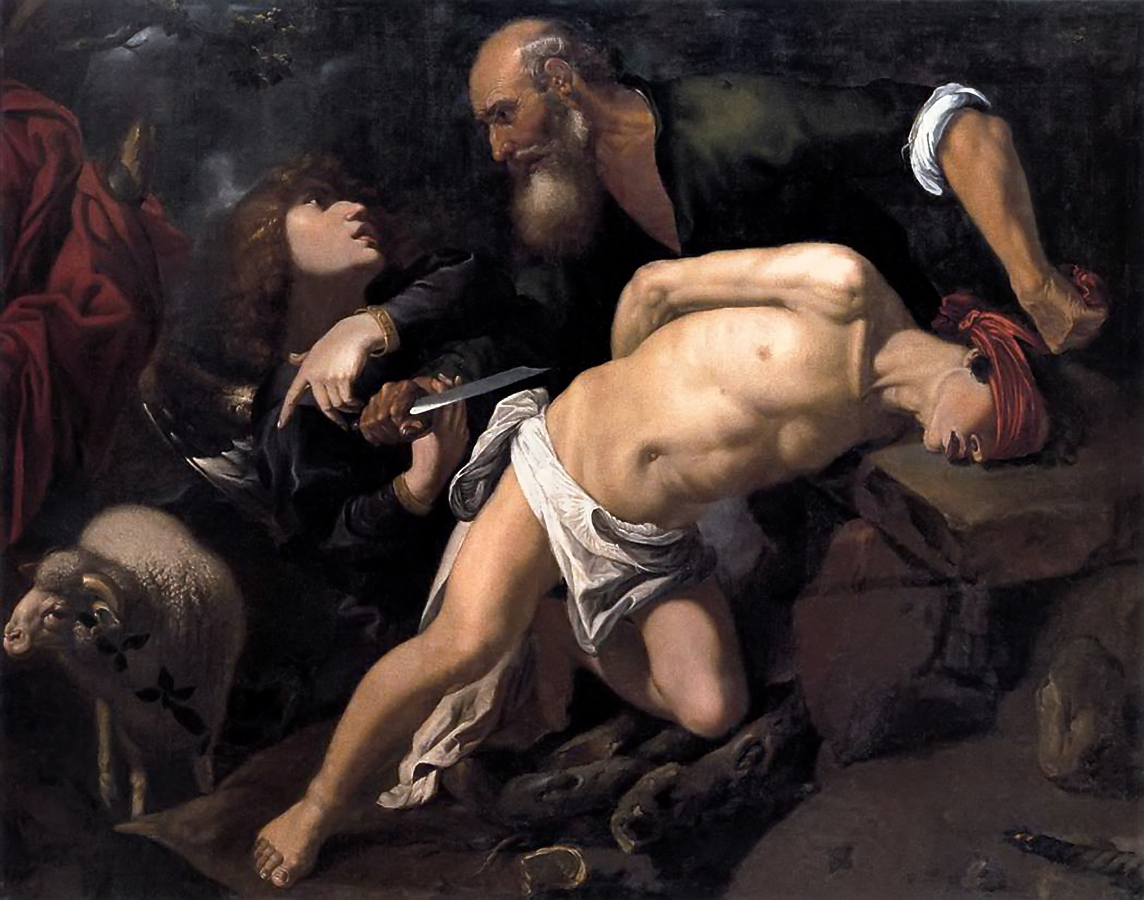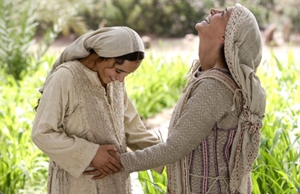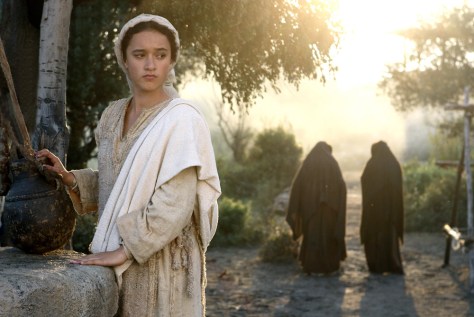 Our son Michael celebrated his 21st birthday last week. When he was born, five weeks premature, and I held that little bundle of life in my hands for the first time, I didn’t know whether the Lord who had given us a son would take him back again. Although I wasn’t quite as old as Abraham, it was the first time I could really identify with him. Twenty one years later, Mike is taller, more intelligent and more attractive than me.
Our son Michael celebrated his 21st birthday last week. When he was born, five weeks premature, and I held that little bundle of life in my hands for the first time, I didn’t know whether the Lord who had given us a son would take him back again. Although I wasn’t quite as old as Abraham, it was the first time I could really identify with him. Twenty one years later, Mike is taller, more intelligent and more attractive than me.
At the age of 75, Abraham was called to follow the Lord. Now, aged well over 100, he was still having faith-stretching, heart stopping experiences. The lesson? We are never too old to face new challenges, fight new battles, and learn new truths. When we stop learning, we stop growing; and when we stop growing, we stop living. “The first forty years of life give us the text,” “and the next thirty supply the commentary.” The “commentary” is being written as we listen to God, and follow His directions, one step, one day, one challenge at a time. Sad to say, many people understand neither the text nor the commentary, and their lives are ended before they have understood the meaning of life. Genesis 22 records the greatest test that Abraham ever faced. In it we also see the progressive unfolding of God’s rescue mission for planet earth. As we found in our series Christ in All the Scriptures, it contains a beautiful prefiguring of Christ’s sacrifice on Calvary.
In both, the lesson from this passage is this: obedient faith overcomes in the trials of life. I want us to consider five lessons we can learn from the testing of Abraham. We can learn them the hard way or the easy way. With God or without him.

 The Liberty of Grace – and Why the Church is Persecuted (Galatians 5)
The Liberty of Grace – and Why the Church is Persecuted (Galatians 5) Jesus said, “If you hold to my teaching, you are really my disciples. Then you will know the truth, and the truth will set you free.” (John 8:31-32). But the truth is dangerous for many in our world today. And Christians in the South and East, it seems, are willing to pay the price to stand for Jesus. Yet in the West, we have domesticated Him. We don’t necessarily see the link between truth and freedom. We probably don’t experience opposition to our faith on a daily basis. So we take freedom for granted and we are liable to compromise the truth. When was the last time you brought Jesus into a conversation at a dinner party or meal with friends or neighbours? Die for Jesus on the streets of Virginia Water? I don’t think so. Hard to imagine. In November each year, we pause for two minutes silence to remember the names of people from Virginia Water who gave their lives to preserve our freedoms and defend us from fascism and totalitarianism. Imagine if those lists were the names of Christian brothers and sisters from our church family who had given their lives in the service of Christ? Would we honour them differently? What of those Christ followers in Syria, Iraq, Iran, North Korea, and many parts of the world, for whom the persecution Paul writes of in our passage today is the norm. Can we take it for granted that it won’t happen in our country?
Jesus said, “If you hold to my teaching, you are really my disciples. Then you will know the truth, and the truth will set you free.” (John 8:31-32). But the truth is dangerous for many in our world today. And Christians in the South and East, it seems, are willing to pay the price to stand for Jesus. Yet in the West, we have domesticated Him. We don’t necessarily see the link between truth and freedom. We probably don’t experience opposition to our faith on a daily basis. So we take freedom for granted and we are liable to compromise the truth. When was the last time you brought Jesus into a conversation at a dinner party or meal with friends or neighbours? Die for Jesus on the streets of Virginia Water? I don’t think so. Hard to imagine. In November each year, we pause for two minutes silence to remember the names of people from Virginia Water who gave their lives to preserve our freedoms and defend us from fascism and totalitarianism. Imagine if those lists were the names of Christian brothers and sisters from our church family who had given their lives in the service of Christ? Would we honour them differently? What of those Christ followers in Syria, Iraq, Iran, North Korea, and many parts of the world, for whom the persecution Paul writes of in our passage today is the norm. Can we take it for granted that it won’t happen in our country? Have you seen the weather forecast for this week? Temperatures will be dropping to – 60 degrees centigrade. Winds exceeding 100 mph. No sunlight for months on end. Imagine surviving in those conditions without shelter, without heat, without clothes. Its hard to believe but some do, indeed they have adapted and thrive in such conditions. Every aspect of the Emperor Penguin’s life is tough, for the bird is the southernmost species and breeds on the ice-bound Antarctic land mass. What it takes to do this is remarkable.
Have you seen the weather forecast for this week? Temperatures will be dropping to – 60 degrees centigrade. Winds exceeding 100 mph. No sunlight for months on end. Imagine surviving in those conditions without shelter, without heat, without clothes. Its hard to believe but some do, indeed they have adapted and thrive in such conditions. Every aspect of the Emperor Penguin’s life is tough, for the bird is the southernmost species and breeds on the ice-bound Antarctic land mass. What it takes to do this is remarkable.


 Why do we smile when we see a baby, even when we are having a bad hair day? Have you ever wondered what it is about babies that melts our hearts? Why are we instinctively drawn toward babies? Is it because a new person has come into the world? The thought that this person is unique? Is it the sight of their tiny hands and feet so perfectly formed? Is it their vulnerability? Their big blue or brown eyes?
Why do we smile when we see a baby, even when we are having a bad hair day? Have you ever wondered what it is about babies that melts our hearts? Why are we instinctively drawn toward babies? Is it because a new person has come into the world? The thought that this person is unique? Is it the sight of their tiny hands and feet so perfectly formed? Is it their vulnerability? Their big blue or brown eyes?
 Remember the last time you filled out a job application? You listed your education, your skills, your work experience. Then you hit the final question: “What is it that makes you uniquely qualified for this position?” How do you answer without appearing arrogant? And when I am asked to give a reference for someone, the question I stumble over is “What are the applicant’s weaknesses? Employers assume your availability, but what they really want to know about is your liabilities. Most employers hire on the basis of competence. They look at your skill set and maybe your personality type. Only the enlightened ones care much about your character. But God doesn’t operate this way. In today’s reading from Luke, we learn what it means to say “I am the Lord’s servant comma”
Remember the last time you filled out a job application? You listed your education, your skills, your work experience. Then you hit the final question: “What is it that makes you uniquely qualified for this position?” How do you answer without appearing arrogant? And when I am asked to give a reference for someone, the question I stumble over is “What are the applicant’s weaknesses? Employers assume your availability, but what they really want to know about is your liabilities. Most employers hire on the basis of competence. They look at your skill set and maybe your personality type. Only the enlightened ones care much about your character. But God doesn’t operate this way. In today’s reading from Luke, we learn what it means to say “I am the Lord’s servant comma”